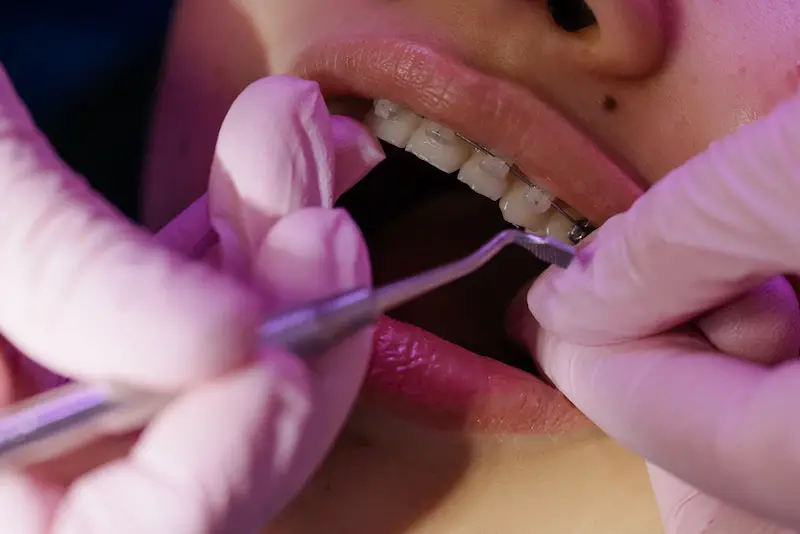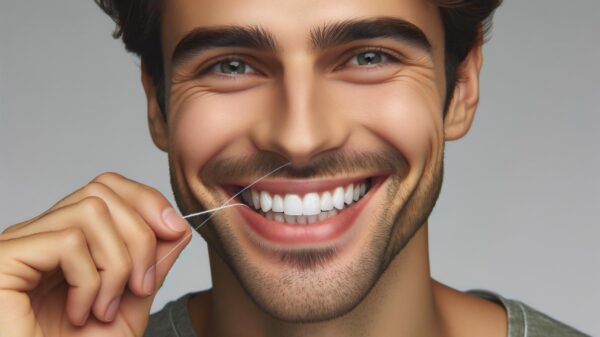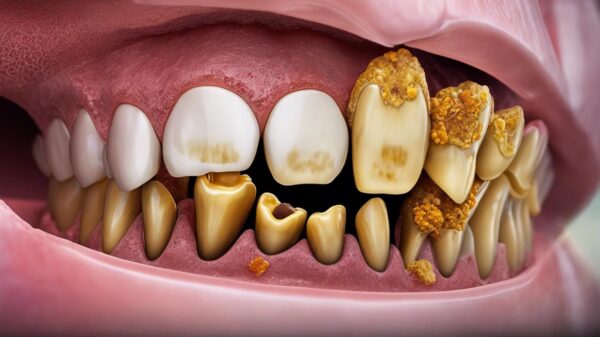Dentists vs. Orthodontists: How Are They Different?
Orthodontists and Dentists are both important for dental health. They do have differences, however. Dentists are focused primarily on dental and gum health, preventative care, and fixing damage done by plaque build-up.
So, what is the difference between an orthodontist and a dentist? There are fundamental differences between an orthodontist and a dentist. A dentist is a primary-care provider who works in preventing, diagnosing, and treating oral problems for both children and adults. Dentists provide emergency or urgent care when necessary. An orthodontist, on the other hand, specializes in diagnosing and treating misalignment of teeth. They also provide care for issues related to the jaws, bite, and general oral health.
Both dentists and orthodontists must go through many years of education and training; however, the two professions often serve different patients. Dentists and orthodontists both treat patients and can provide emergency care. Keep reading to learn more about both the differences and the similarities between these two professions.
Similarities Between Orthodontists and Dentists
It can be difficult to differentiate between an orthodontist and a dentist because the two professions have many similarities. Both are responsible for diagnosing, preventing, and treating oral health conditions. Thus, both professionals’ tools, equipment, treatments, and services are very much similar to one another in terms of purpose.
Before becoming an orthodontist, a dentist must first complete dental school and pass his state board examinations. Orthodontists then spend an additional 2-3 years in residency programs where they receive advanced training and experience in their field of specialization (orthodontics). Even though their education differs a bit, both still have to have extensive schooling and be well versed in oral health, care, and prevention care.
Both dentists and orthodontists teach patients about good oral care like brushing their teeth, flossing, mouth wash, etc. In addition, they both work closely together when a patient has to get braces. It is important that if you are seeing an orthodontist communicate with your dentist about the progress of your teeth, special recommendations, etc.
Many times a dentist is the one who recommends the patient to get braces and refers them to an orthodontist. Both professions are highly noble and take a lot of skill to perform.
What Is An Orthodontist?
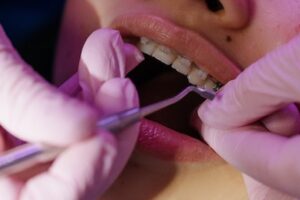 Orthodontists are doctors who specialize in dental and oral health. They diagnose, prevent, and treat issues involving the teeth and jaws such as malocclusion or misalignment of teeth.
Orthodontists are doctors who specialize in dental and oral health. They diagnose, prevent, and treat issues involving the teeth and jaws such as malocclusion or misalignment of teeth.
Orthodontists also treat other types of problems such as overcrowding and gaps in between the teeth. It is also called orthodontics.
Orthodontists are highly trained specialists who have undergone extensive education, training, skills acquisition, and practical experience in their field of specialization.
These professionals hold a doctorate which is why it is common to address them as “doctor” or Dr.
An orthodontist is a type of dentist who specializes in diagnosing and treating the improper alignment of teeth. Orthodontists provide services such as braces, retainers, spacers, headgear for children with abnormal jaw growth or development irregularities.
They also treat problems involving overcrowded or widely spaced teeth along with other issues related to the jaws, teeth, and bite.
What Does a Dentist Do?
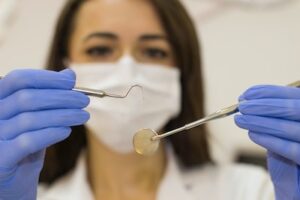 Dentists are the primary care physician of your mouth. They don’t focus on specializations, but more so focus on general oral care. They are the only professionals who are allowed to place dental implants.
Dentists are the primary care physician of your mouth. They don’t focus on specializations, but more so focus on general oral care. They are the only professionals who are allowed to place dental implants.
In some cases, a dentist may refer a patient with complicated dental issues to an orthodontist so that they can work together as a team to diagnose and provide treatment for the patient.
A dentist provides preventive care for adults as well as children. They are trained to handle dental emergencies that may occur during their workday or when they are done with office hours.
Dentists typically go through four years in dental school where they receive training about different parts of the human body along with intensive instruction on how to treat real-life as well as theoretical cases.
After completing dental school, a dentist usually spends two or three years in residency programs where they obtain additional skills and training in their specific areas of interest such as general dentistry, oral surgery, pediatric dentistry, etc.
Dentists typically have longer-lasting relationships with their patients. It is recommended for most people to see their dentist 2 times a year for a lifetime. This is because they don’t just fix a specific problem.
They are constantly checking up on your oral health to address each problem as it comes up from the time you are young to the time you grow older and have a whole new set of problems. Although there are pediatric dentists, many people like myself have had the same dentist their whole life.
One of the most common services dentists provide is cleanings. This is when they clean teeth, use special whitening products and check for cavities. Orthodontists can do this as well, but it is not a primary part of their practice
Why Should You Go to the Dentist?
A major concern for people is going to the dentist. You may know that it takes a couple of hours out of your day, with sometimes a bit of a wait, and a few hundred dollars too. But what not everyone knows is how going to the dentist can have tremendous positive effects on your life. We asked the dental professionals at Dental Associates of Fyffe for their input on why you should go to the dentist:
Dental health is important for your body. You need to go to the dentist because it’s what keeps your teeth in good condition and protects you from getting problems like cavities or tooth decay.
A visit to the dentist can help you prevent tooth loss. When you are young, your adult teeth are put into place through your gums. Once the baby teeth fall out, these adult teeth are put in their place.
Tooth loss occurs when gums recede, leaving nothing to support your adult teeth, which then fall out too. When this happens, you’ll have to get false teeth which can be very expensive and is something that no one wants to experience.
Going to the dentist regularly can help you prevent tooth loss. A good dentist will be able to give you tips on how to keep your teeth in place, like brushing after every meal and flossing regularly. Your dentist is also trained to detect the early signs of gums receding. If they detect this early, that allows them to tell you what you can do to help yourself before it turns into something worse.
Going to the dentist is important because it helps you protect your healthy teeth. It’s not fun to get cavities, and if you know how to prevent them like brushing after every meal and flossing regularly, then you should go to the dentist.
Tooth loss is something that no one enjoys, and if you know what you can do to help yourself early before it turns into something serious (like gum receding), then you should go to the dentist!
Why Should You Go to the Orthodontist?
 Everybody wants to have a pretty smile. So, it is important to care for your teeth so they stay healthy and white. Brushing your teeth regularly with toothpaste helps this.
Everybody wants to have a pretty smile. So, it is important to care for your teeth so they stay healthy and white. Brushing your teeth regularly with toothpaste helps this.
If your teeth are not clean, they will turn yellow and might even hurt. Brushing them does not take a long time and it is worth the effort.
Going to the orthodontist also improves your smile and oral health. Overcrowded teeth, gaps, and jaw issues can cause more problems than just a less desirable smile. This can cause major issues in the long run.
It is important to have teeth that are manageable. If you have an overcrowded mouth, for instance, you can have places of your smile that are hard to brush and floss. This can cause plaque build-up and cavities galore.
The orthodontist checks the status of your teeth and can see if something does not look right. They might recommend a course of treatment to fix it. For example, if you have crowded teeth they will suggest you use space maintainers until the teeth move into the right position.
Or if your teeth are not straight they can help you get Invisalign clear braces so your smile is pretty and just how you want it to be. In the long run, it is better to go regularly to your Tulsa dentist and orthodontist so you can have a perfect smile that stays pretty.



